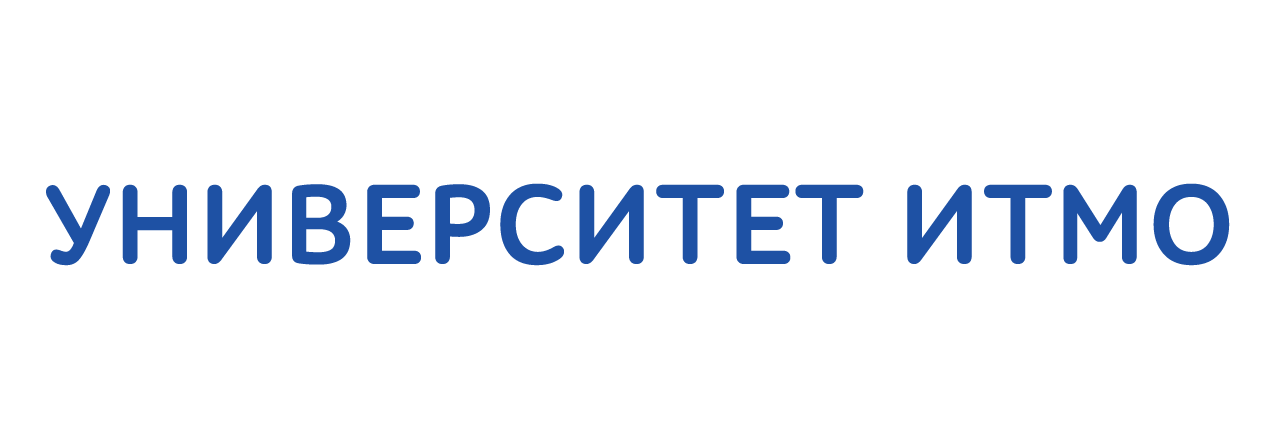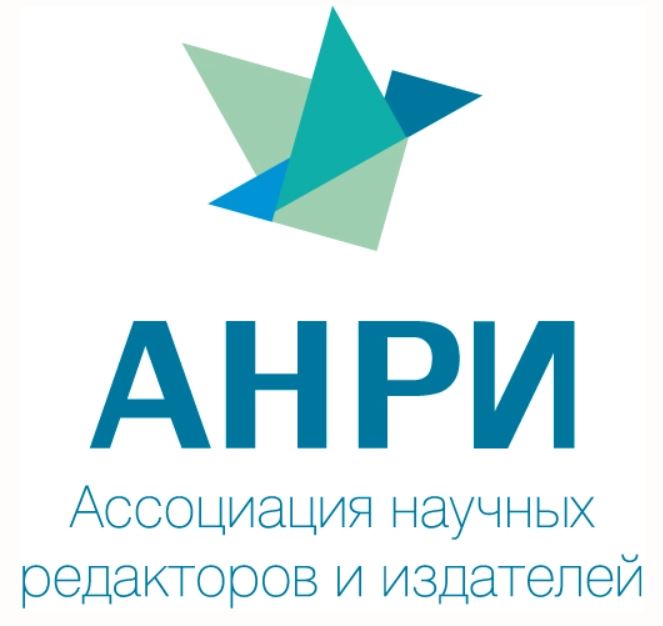Меню
Публикации
2026
2025
2024
2023
2022
2021
2020
2019
2018
2017
2016
2015
2014
2013
2012
2011
2010
2009
2008
2007
2006
2005
2004
2003
2002
2001
Главный редактор

НИКИФОРОВ
Владимир Олегович
д.т.н., профессор
Партнеры
УДК 37:004
Лисицына Л.С., Лямин А.В., Быстрицкий А., Мартынихин И.А.
Читать статью полностью
ПРОБЛЕМА ПОДДЕРЖКИ КОГНИТИВНЫХ ФУНКЦИЙ В ПРОЦЕССЕ ЭЛЕКТРОННОГО ОБУЧЕНИЯ
Читать статью полностью
Язык статьи - Русский
Аннотация
Аннотация
Успешность развития таких важнейших когнитивных функций человека, как внимание, восприятие и скорость обработки информации, рабочая и долговременная память, мышление и т.п., является необходимой основой повышения результативности электронного обучения. Одним из путей развития когнитивных функций обучаемых в процессе электронного обучения являются компьютерные когнитивные тренинги, которые включаются в индивидуальную траекторию обучения для стимулирования его к успешному выполнению определенных учебных задач электронного курса. Проведен анализ проблем оценивания эффектов когнитивных тренингов (выраженности, устойчивости и трансфера) и предложены пути их решения. Показано, что биологической основой эффектов когнитивных тренингов является нейропластичность головного мозга, которая влияет на продолжительность и интенсивность проведения тренингов. Предложен подход к организации исследований эффектов когнитивных тренингов, основанный на применении случайных методов. Показана перспективность использования игровых механик для реализации когнитивных тренингов в электронном обучении. Проведен детальный анализ подходов к тренингу базовых когнитивных функций, в том числе рабочей памяти обучаемых. Практическая значимость данной работы состоит в выявлении первоочередных задач для разработки и исследования когнитивных тренингов в электронном обучении.
Ключевые слова: электронное обучение, когнитивный тренинг, базовые и комплексные когнитивные функции, тренинг рабочей памяти, нейропластичность, оценки эффектов когнитивных тренингов
Список литературы
Список литературы
1. Васильев В.Н., Стафеев С.К., Лисицына Л.С., Ольшевская А.В. От традиционного дистанционного
обучения к массовым открытым онлайн-курсам // Научно-технический вестник информационных
технологий, механики и оптики. 2014. № 1 (89). С. 199–205.
2. Lisitsyna L., Lyamin A. Approach to development of effective e-learning courses // Frontiers in Artificial
Intelligence and Application. 2014. V. 262. P. 732–738.
3. Lisitsyna L., Lyamin A., Skshidlevsky A. Estimation of student functional state in learning management system
by heart rate variability method // Frontiers in Artificial Intelligence and Application. 2014. V. 262. P.
726–731.
4. Clark R.C., Nguyen F., Sweller J. Efficiency in Learning: Evidence-Based Guidelines to Manage Cognitive
Load. San Francisco: Pfeiffer, 2006. 416 p.
5. Vinogradov S., Fisher M., de Villers-Sidani E. Cognitive training for impaired neural systems in neuropsychiatric
illness // Neuropsychopharmacology. 2012. V. 37. N 1. P. 43–76.
6. Shipstead Z., Hicks K., Engle R. Cogmed working memory training: does the evidence support the claims? //
Journal of Applied Research in Memory and Cognition. 2012. N 1. P. 185–193.
7. Pascual-Leone A., Freitas C., Oberman L., Horvath J.C., Halko M., Eldaief M., Bashir S., Vernet M., Shafi
M., Westover B., Vahabzadeh-Hagh A.M., Rotenberg A. Characterizing brain cortical plasticity and network
dynamics across the age-span in health and disease with TMS-EEG and TMS-fMRI // Brain Topography.
2011. V. 24. N 3–4. P. 302–315.
8. Fisher M., Holland C., Subramaniam K., Vinogradov S. Neuroplasticity-based cognitive training in schizophrenia:
an interim report on the effects 6 months later // Schizophrtnia Bulletin. 2010. V. 36. N 4. P. 869–
879.
9. Sagi Y., Tavor I., Hofstetter S., Tzur-Moryosef S., Blumenfeld-Katzir T., Assaf Y. Learning in the fast lane:
new insights into neuroplasticity // Neuron. 2012. V. 73. N 6. P. 1195–1203.
10. Kleim J.A., Pipitone M.A., Czerlanis C., Greenough W.T. Structural stability within the lateral cerebellar
nucleus of the rat following complex motor learning // Neurobiology of Learning and Memory. 1998. V. 69.
N 3. P. 290–306.
11. Ungerleider L.G., Doyon J., Karni A. Imaging brain plasticity during motor skill learning // Neurobiology of
Learning and Memory. 2002. V. 78. N 3. P. 553–564.
12. Kleim J.A., Hogg T.M., Vandenberg P.M., Cooper N.R., Bruneau R., Remple M. Cortical synaptogenesis
and motor map reorganization occur during late, but not early, phase of motor skill learning // Journal of
Neuroscience. 2004. V. 24. N 3. P. 628–633.
13. Vinogradov S., Fisher M., Holland C., Shelly W., Wolkowitz O., Mellon S.H. Is serum brain-derived
neurotrophic factor a biomarker for cognitive enhancement in schizophrenia? // Biological Psychiatry. 2009.
V. 66. N 6. P. 549–553.
14. Величковский Б.М. Когнитивная наука: oсновы психологии познания. Том 1. М.: Смысл, 2006. 448 с.
15. Melby-Lervag M., Hulme C. Is working memory training effective? A meta-analytic review // Developmental
Psychology. 2013. V. 49. N 2. P. 270–291.
16. Власов В.В. Введение в доказательную медицину. М.: Медиа-Сфера, 2001. 392 с.
17. Хоторнский эффект – Википедия [Электронный ресурс]. Режим доступа:
http://ru.wikipedia.org/wiki/Хоторнский_эффект, свободный. Яз. рус. (дата обращения 15.05.2014).
18. Jaeggi S.M., Buschkuehl M., Shah P., Jonides J. The role of individual differences in cognitive training and
transfer // Memory and Cognition. 2013. V. 42. N 3. P. 464–480.
19. Sim T., Gentile D.A., Bricolo F., Serpollini G., Gulamoydeen F. A conceptual review of research on the
pathological use of computers, video games, and the Internet // International Journal of Mental Health and
Addiction. 2012. V. 10. N 5. P. 748–769.
20. Messias E., Castro J., Saini, A. Usman M., Peeples D. Sadness, suicide, and their association with video
game and Internet overuse among teens: results from the Youth Risk Behavior Survey 2007 and 2009 // Suicide
and Life-Threatening Behavior. 2011. V. 41. N 3. P. 307–315.
21. Granic I., Lobel A., Engels R.C.M.E. The benefits of playing video games // American Psychologist. 2014.
V. 69. N 1. P. 66–78.
22. Boyle E.A., Connolly T.M., Hainey T. The role of psychology in understanding the impact of computer
games // Entertainment Computing. 2011. V. 2. N 2. P. 69–74.
23. Connolly T.M., Boyle E.A., MacArthur E., Hainey T., Boyle J.M. A systematic literature review of empirical
evidence on computer games and serious games // Computers and Education. 2012. V. 59. N 2. P. 661–686.
24. Boot W.R., Blakely D.P., Simons D.J. Do action video games improve perception and cognition? // Frontiers
in Psychology. 2011. V. 2. Art. 226.
25. Peretz C., Korczyn A.D., Shatil E., Aharonson V., Birnboim S., Giladi N. Computer-based, personalized
cognitive training versus classical computer games: a randomized double-blind prospective trial of cognitive
stimulation // Neuroepidemiology. 2011. V. 36. N 2. P. 91–99.
26. Лисицына Л.С., Першин А.А., Усков В.Л. К вопросу повышения результативности массового онлайн-
курса // Научно-технический вестник информационных технологий, механики и оптики. 2014. №
5 (93). С. 164–171.
27. Owen A.M., Hampshire A., Grahn J.A., Stenton R., Dajani S., Burns A.S., Howard R.J., Ballard C.G. Putting
brain training to the test // Nature. 2010. V. 465. N 7299. P. 775–778.
28. Kelly M.E., Loughrey D., Lawlor B.A., Robertson I.H., Walsh C., Brennan S. The impact of cognitive training
and mental stimulation on cognitive and everyday functioning of healthy older adults: a systematic review
and meta-analysis // Ageing Research Reviews. 2014. V. 15. P. 28–43.
29. Karch D., Albers L., Renner G., Lichtenauer N., von Kries R. The efficacy of cognitive training programs in
children and adolescents – a meta-analysis // Deutsches Arzteblatt International. 2013. V. 110. N 39. P.
643−652.
30. Anguera J.A., Boccanfuso J., Rintoul J.L., Al-Hashimi O., Faraji F., Janowich J., Kong E., Larraburo Y.,
Rolle C., Johnston E., Gazzaley A. Video game training enhances cognitive control in older adults // Nature.
2013. V. 501. N 7465. P. 97–101.
31. Rapport M.D, Orban S.A., Kofler M.J., Friedman L.M. Do programs designed to train working memory, other
executive functions, and attention benefit children with ADHD? A meta-analytic review of cognitive, academic,
and behavioral outcomes // Clinical Psychology Review. 2013. V. 33. N 8. P. 1237–1252.
32. Borness C., Proudfoot J., Crawford J., Valenzuela M. Putting brain training to the test in the workplace: a
randomized, blinded, multisite, active-controlled trial // PLoS ONE. 2013. V. 8. N 3. Art. e59982.
33. Kueider A.M., Parisi J.M., Gross A.L., Rebok G.W. Computerized cognitive training with older adults: a
systematic review // PLoS One. 2012. V. 7. N 7. Art. e40588.
34. Unsworth N., Engle R.W. On the division of short-term and working memory: an examination of simple and
complex span and their relation to higher order abilities // Psychological Bulletin. 2007. V. 133. N 6. P.
1038–1066.
35. Gathercole S.E., Alloway T.P. Short-term and working memory impairments in neurodevelopmental disorders:
diagnosis and remedial support // Journal of Child Psychology and Psychiatry. 2006. V. 47. N 1. P. 4–
15.
36. Alloway T.P., Alloway R.G. Investigating the predictive roles of working memory and IQ in academic attainment
// Journal of Experimental Child Psychology. 2010. V. 106. N 1. P. 20–29.
37. Klingberg T. Training and plasticity of working memory // Trends in Cognitive Sciences. 2010. V. 14. N 7.
P. 317–324.
38. Diamond A., Lee K. Interventions shown to aid executive function development in children 4 to 12 years old
// Science. 2011. V. 333. N 6045. P. 959–964.
39. Takeuchi H., Sekiguchi A., Taki Y., Yokoyama S., Yomogida Y., Komuro N., Yamanouchi T., Suzuki S.,
Kawashima R. Training of working memory impacts structural connectivity // Journal of Neuroscience.
2010. V. 30. N 9. P. 3297–3303.
40. Klingberg T., Forssberg H., Westerberg H. Training of working memory in children with ADHD // Journal of
Clinical and Experimental Neuropsychology. 2002. V. 24. N 6. P. 781–791.
41. Ralph K. Cogmed Working Memory Training. Pearson. Clinical Assessment [Электронный ресурс]. Режим
доступа: http://www.pearsonclinical.co.uk/Cogmed/Downloads/cogmed-claims-and-evidence.pdf, свобод-
ный. Яз. англ. (дата обращения 15.05.2014).
42. Jaeggi S.M., Buschkuehl M., Jonides J., Perrig W.J. Improving fluid intelligence with training on working
memory // Proc. of the National Academy of Sciences of the United States of America. 2008. V. 105. N 19.
P. 6829–6833.
43. Kaufman S.B. New Cognitive Training Study Takes on the Critics [Электронный ресурс]. Режим доступа:
http://blogs.scientificamerican.com/beautiful-minds/2013/10/09/new-cognitive-training-study-takes-on-thecritics/,
свободный. Яз. англ. (дата обращения 15.05.2014).

















